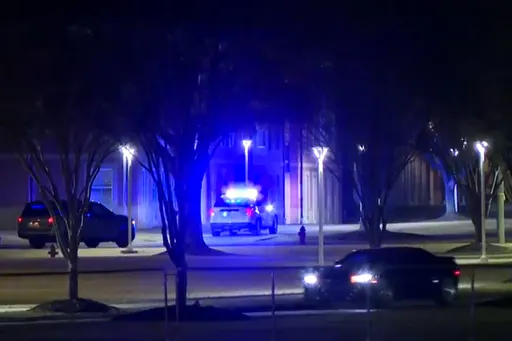Brexit has become one of the gravest political crises facing the UK for at least a couple of generations.
On 12th March, British MPs had a second opportunity to vote on the Brexit deal between the European Union and the UK. The withdrawal agreement was rejected, and for the second time, Theresa May was rebuked by another embarrassing defeat.
This double defeat and British MPs’ desire to leave without paying the more than $51 billion Brexit bill (divorce bill) reminds one of Charles de Gaulle’s rejection of UK’s membership to the EEC (a predecessor of sorts to the EU) and his speech in 1963 underlining how “the UK’s identity” is different from other EU countries.
He said, “In short, the nature, structure and economic context of England different profoundly from those of the other States of the Continent."
Expectedly, the “deal” option was crushed yesterday. A 'no deal' or 'delay' are two options left until 29th March while Prime Minister Theresa May tries to pressure British lawmakers to support her Brexit deal.
So what can Brexiteers expect from the “Global Britain” narrative that's been doing the rounds? Does this identify Britain’s growing isolation on the international stage? Is De Gaulle the father of Brexit? Finding an answer to these questions reveals the real face of the Brexit deadlock.
'Global Britain'
In December 2016, Foreign Secretary Boris Johnson explained Brexit with the famous words from Tolstoy's Anna Karenina: “all happy families are alike, every unhappy family is unhappy in its own way”.
By quoting Tolstoy, Johnson is explicitly stating that discontent can come from different wellsprings.
"There were plenty of people who voted to leave the EU, not because they disliked or feared foreigners, but because they believed in democracy," said Johnson.
After a 43-year relationship with the EU, the UK voted for a divorce. Johnson likely chose those words to explain that the government and the public should not let the glib analogies replace individual analyses and a Britain where they pass their laws and govern themselves - a country where they look beyond their continent and to opportunities in the wider world.
Since June 2016, government ministers have frequently used the phrase ‘Global Britain’ to stress the UK’s foreign policy ambitions. This is a phrase designed to convince the world that Brexit would not mean Britain is withdrawing from the world.
Additionally, Prime Minister Theresa May first outlined her vision for Global Britain in her speech to the Conservative Party Conference in October 2016 and said: "Brexit should not just prompt us to think about our new relationship with the European Union. It should make us think about our role in the wider world. It should make us think of Global Britain, a country with the self-confidence and the freedom to look beyond the continent of Europe and to the economic and diplomatic opportunities of the wider world. Because we know that the referendum was not a vote to turn in ourselves, to cut ourselves off from the world. It was a vote for Britain to stand tall, to believe in ourselves, to forge an ambitious and optimistic new role in the world."
With the notion of Global Britain, they envision Britain maintaining influence in three broad areas: "in North America, overwhelmingly the United States, in Europe and its neighbourhood; and in the Indo-Pacific region. Maintaining influence in these areas is essential to making Global Britain a success."
At the same time, to fully realise the vision of Global Britain means being active and influential in all regions.
De Gaulle: The unlikely predictor of Brexit
Both 1963 and 1967 are landmark years in the path of Britain’s attempts to join the European Economic Community as one of the founding six nations.
De Gaulle, the French president at the time, had been the immovable object lying in the path of Britain’s attempts to join that partnership with six other states. De Gaulle’s double veto of UK’s entry makes him the unlikely predictor of Brexit.
This is primarily because De Gaulle strategically aimed to create a power bloc without the ‘Anglo-Saxon Powers,’ i.e. the UK and the US. But, there is no doubt that one of the main reasons is an “identity crisis”.
Many British people had not yet accepted that the UK was part of Europe and often talked about “going to Europe” when crossing the English Channel. For the UK, the European construction is not a political project; it is merely an economic partnership.
There’s no doubt De Gaulle would be smiling today if he could have seen Theresa May’s struggles in the House of Lords.
Lessons from Brexit
The stakes for Brexit could not be any higher than they are at the moment. Britons face both a democratic and economic crisis.
Two weeks ago, in London, I met with Britain’s ex-ambassador to the EU, Ivan Rogers. He is not a politician and has had a long career serving governments of all colours, mostly on international and financial issues.
That’s why, in his newly published book, “9 Lessons in Brexit”, he presents the stark realities about the failure of the British political class and the UK’s approach to Brexit.
One of the most painful, yet realistic lessons that Britons will have to understand from that is of European 'solidarity'. He says “Brexit means Brexit not facetiously. Once you leave the EU, you cannot, from just outside the fence, achieve all the benefits you got just inside it.”
He explains that the solidarity of the club members will always be with each other, not with the UK. The EU will not support the UK on the 'backstop', Gibraltar related demands from Madrid, the Free Trade Agreement, or the borders of Cyprus, etc.
He strictly warned that “We need, urgently, on all sides of the spectrum, to start understanding how being a 'third country'is different.”























